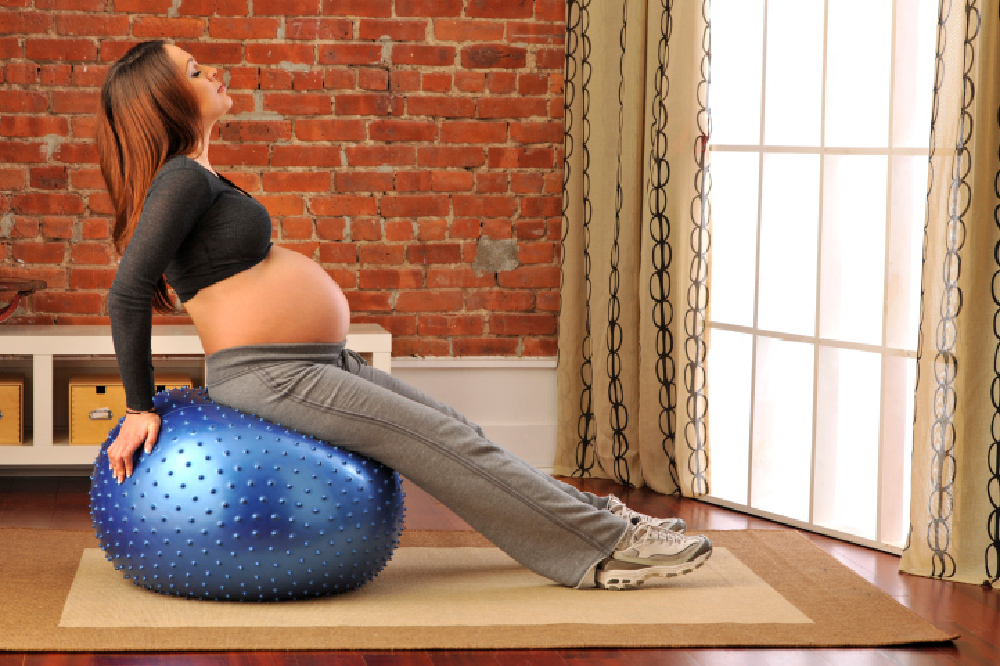
Advice on Best Ways to Workout and Precautions for Pregnant Women
Dr Penelope Law, The Portland Hospital’s Consultant Obstetrician, shares exercise advice for pregnancy including which exercises are best for mums-to-be and information on precautions that pregnant women should consider taking when exercising.
Q&A: Advice for exercising during and after pregnancy
Is it safe to exercise when pregnant?
It is much safer to exercise in pregnancy than not to! (Reduced mobility increases the chance of a venous blood clot)
Can exercise help a women during pregnancy and birth, if so how?
Yes - the expanding uterus compresses the maximum lung volume and can lead to some women experiencing breathlessness.
Women who have a greater maximum lung volume to start with as a result of regular exercise will be much less likely to suffer from shortness of breath and will be better prepared for the physical exertion of labour and delivery.
When should a woman stop exercising - and are there any warning signs mums-to-be should look out for?
There are no rules as when to stop exercising. If tightenings or contractions start and do not subside in a few minutes it would be appropriate to stop and tell your doctor or midwife.
If you feel lightheaded or experience any pain of any sort (especially abdominal) during exercise, stop at once. Listen to your body. If in doubt, stop or reduce the intensity of what you are doing.
What type of exercise is best for mums to be - should they do any warm ups?
For exercise to be doing you good, you need to be slightly out of breath and for your heart rate to rise (should be over 100 beats per minute ) If you feel any pain in your chest or palpitations you should stop to ensure it subsides (and tell you Dr or midwife).
A cardiovascular warm up with some gentle stretches is always a good idea- and some cooling down stretches at the end of your session. Swimming is ideal, as it puts no strain on your joints or abdomen. Yoga or Pilates classes specifically for pregnant women are also ideal.
What type of exercise or sports do you recommend that women steer clear of?
Really any form of aerobic exercise is beneficial however, avoid starting a new sport, other than swimming, and yoga and Pilates for pregnant women. Avoid lifting heavy weights, as ligaments and tendons soften during pregnancy (as a result of pregnancy hormones) and these can become permanently stretched by excessive weight-lifting.
Stick to light weights if you want to continue resistance exercises. Avoid abdominal exercises by midway through the 2nd trimester, as this can damage the band of muscles that run down vertically down the abdomen.
Also avoid any form of exercise that has a significant chance of you falling on your abdomen/ or someone falling onto you i.e. contact sports.
Fast downhill skiing/ horseback riding are best avoided from the 2ndtrimester onwards (to avoid the very small chance of suffering a placental abruption (when some of the placenta separates from the uterine wall) in the event of a sudden fall (your balance is affected by your growing bump).
Once again, listen to your body – your expanding abdomen will probably tell you when you should stop a particular sport or activity.
How soon should women start exercising after giving birth if they want to get back into shape?
Often women are advised to wait for six weeks before exercising again - there is no good medical reason for this, and remember that women are expected to often go home by 24 hours after delivery and start normal activities again. You will be extremely tired but elated.
I would suggest you wait until you have some of your energy back and are getting a few hours uninterrupted sleep each night before embarking on an exercise programme, but certainly brisk walking or even running with a pram before then can actually make you feel less tired.
Your abdominal and back muscles will have become weakened during pregnancy, so start strengthening them gently and gradually, otherwise you risk straining them. However, if you have had a Caesarean section, you should wait a little longer before starting on any abdominal exercises, and be careful not to overdo things.
If you feel any pulling or pain, stop at once. In all cases, you should be aware of how your body is feeling during and after the exercises. Better to do a little and often than do too much and have to stop because you have injured yourself.
If a new mum wanted to shift her baby weight, what time scale should she set herself?
Women should aim to put on no more than 11kg overall during their pregnancy (equals an extra banana a day from 32 weeks onwards), approx. 4.5 kg will be baby plus placenta plus amniotic fluid, which will be lost with the birth of your baby, leaving you with about 6.5 kg to shed.
Half a kilo per week is realistic especially if you breastfeed, and this can be achieved eating healthy food and not even dieting.
There are now many post natal exercise classes where babies and prams are encouraged and even form part of the exercise. If you can afford it, a personal trainer that comes to you at home can sometimes be cheaper than membership of a gym.
You should not feel pressurised to immediately start exercising frantically; remember you have just done something amazing.
Dr Penelope Law, Consultant Obstetrician, The Portland Hospital.
Share your tips and advice on pregnancy exercise in the comments below or tweet us @FemaleFirst_UK
FemaleFirst

